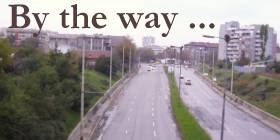
|
with Richard Graves
5. First Verse
|
Talent-spotting - let alone genius-spotting - is an ability by no means
to be despised. Nor does it always get its fair recognition. The names of
the folk who gave Kreisler his initial engagement, published Schubert's
first song or offered Pavarotti his debut on the operatic stage have probably
been forgotten - but they must have had the kind of insight and intuition
which surely deserve to be remembered.
The following incident is recorded in J.H.Squire's autobiography ...And
Master of None (Herbert Jenkins 1937), an entertaining volume full of
amusing glimpses at musical life in the opening decades of the Twentieth
Century. Squire was best known for founding the eponymous J.H.Squire Celeste
Octet which became highly popular on gramophone records and on radio during
the 1930's. This story, though, takes us back to the earlier years of the
century when the youthful Squire was working as general dogsbody in New
York for the Ted Snyder Music Company Inc. Its boss was called Henry Waterson
- a man evidently of perception and blessed with a good memory.
He and squire were busily discussing business in the publisher's office
one day when a young lad, shabbily dressed and obviously ill at ease, entered
to ask if anyone might like to buy the song he had just composed. Waterson
replied that that was what they were in business for and invited the boy
to let them hear it. The youngster thereupon sat down at the piano and played
the first verse and chorus. 'Not bad!' was Waterson's reaction, adding that
the lad should now go away and write the mandatory second verse. They then
heard nothing more from him and forgot about the incident.
And then, Squire wrote later, as Waterson and I were out together
one day, I felt a nudge.
'Look!' said the publisher, pointing across the road. 'Isn't that
the little chap who brought us the first verse of a song some time back?'
Waterson hurried up to the lad, asking if he had produced that second
verse yet. He was quite taken aback, finding it difficult to believe that
the offer had been serious in the first place.
'Certainly I meant it. Why not?'
'Then I'll bring it to your office within half an hour!'
And so he did, breathless and with the ink on the manuscript still wet.
Waterson asked the lad how much he wanted for his song.
'I don't know.' He flushed. 'I only know that I want a good meal.
I haven't had anything to eat in two days.'
Waterson gave him twenty-five dollars plus a contract to sign there and
then.
The song was called Dorando and has long been forgotten. The name
of its composer/lyricist lives on, though. It was Irving Berlin.
Copyright © Richard Graves, May 20th
1999
The Street-Singer >>
|